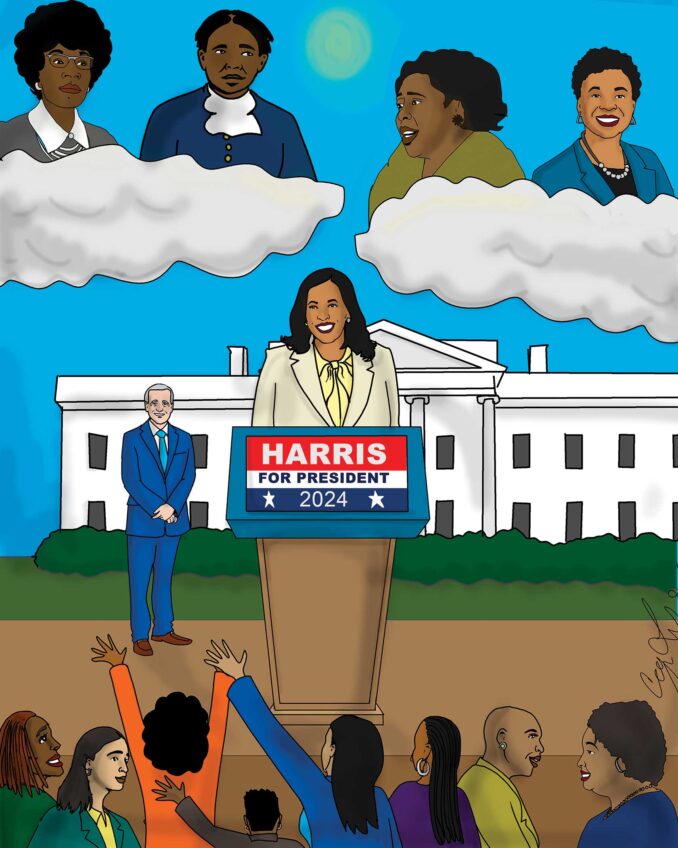After historic victory, Obama will face limitations
Now that Barack Obama has defeated John McCain, Joe the Plumber and a barrage of negative television commercials, he will now strive to balance the high expectations of African Americans and other progressives with the reality of an anemic economy and super-sized budget deficits.
Like McCain, the president-elect promised that shrinking finances will not deter him from keeping his central campaign promises. In Obama’s case, that means extending tax cuts to the middle class, providing additional assistance to college students and revamping the nation’s health care system.
After he is inaugurated, however, Obama and a Democrat-controlled House and Senate will inherit a batch of red ink — one that, though huge, does not fully capture the scope of the problem.
Consider this: When George W. Bush assumed office in 2001, Bill Clinton left him with a budget surplus of $128 billion. On the other hand, Bush has posted a budget deficit every year in office; by 2009, it is expected to reach $482 billion. And that does not include another $80 billion spent on the wars in Iraq and Afghanistan.
After a $700 billion financial services bailout — or what should be called “No Bank Left Behind” — Obama has already stated that a second bailout will be needed, this one for middle-class families and those with troubled home mortgages. This will come while the jury is still out on whether the initial $700 billion will be effective. A recent New York Times article indicated that banks intend to use the bailout money to acquire other banks, not to make new loans as had been promised by Treasury Secretary Henry M. Paulson Jr.
Times reporter Joe Nocera said he listened to an Oct. 17 conference call between a JPMorganChase executive and company employees. This was four days after the company agreed to take $25 billion in federal funding as part of the bailout program.
“What we do think it will help us do is perhaps be a little more active on the acquisition side,” the executive said.
As for making more loans to consumers, the official said: “We would think that loan volume will continue to go down as we continue to tighten credit to fully reflect the high cost of pricing on the loan side.”
After listening to the conversation, Nocera wrote: “It is starting to appear as if one of the Treasury’s key rationales for the recapitalization program — namely, that it will cause banks to start lending again — is a fig leaf, the Treasury’s version of the weapons of mass destruction.”
Had Obama not been elected, it would have been a major setback for the Supreme Court. However, his victory is not expected to change the 5-4 edge that centrists barely hold. At least, it is unlikely to change during Obama’s first term. The two oldest Supreme Court justices — John Paul Stevens, 88, and Ruth Bader Ginsburg, 75 — are liberals. If they are the first to leave the court, Obama will get a chance to replace a liberal with a liberal, which won’t change the court’s present balance. If McCain had been elected, he could have tilted the court to the far right by replacing a liberal with yet another conservative, thus impacting the court for several generations.
Perhaps even more important than the Supreme Court, which hears only 0.1 percent of the cases appealed each year, Obama should be able to restore some balance in the lower courts. According to the National Journal, 54 percent of district court judges were appointed by Republican presidents, as were 56 percent of all appeals judges. It would probably take a second Obama term to shift the balance in both the Supreme Court and the district and appeals levels.
Obama will be able to make an immediate imprint on how the country treats the least among us and deliver what George W. Bush only promised — compassion. Sure, there will be pressure on Obama to shift more toward the center-right and he has done this on some issues, such as the death penalty. However, he has a straight-A voting record on issues important to African Americans, according to the NAACP Legislative Report Card. And throughout his campaign, he did not back away from supporting affirmative action or equal justice.
Unlike the past eight years, we’ll be able to go to bed at night knowing that the president of the United States is not hostile to our concerns. This is the change that not only have we been waiting for, but that the world has been awaiting with us. It has been a long time coming, but it was worth the wait.
George E. Curry, former editor-in-chief of Emerge magazine and the National Newspaper Publishers Association News Service, is a keynote speaker, moderator and media coach.






